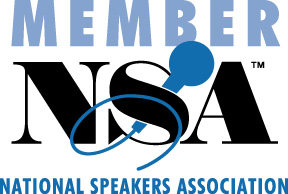Vision of Judy Tso, MAA, Founder of Aha
Judy Tso envisions a world in which human beings are able to interact with a full and true appreciation of the vast gifts, experiences and worldviews that people bring. This level of interaction and human community is necessary for us to sustain a productive, effective and peaceful world in the 21st century.
About Judy Tso
Judy Tso is one of the nation’s leading Social Scientists offering an array of diversity consulting services that blends business, anthropology and creativity to help individuals be more enlightened, productive and successful. Services offered include cultural competency and organizational assessment, consulting, coaching, public speaking and performance.
Having grown up in Louisville, Kentucky during a time when few Asians were present, Judy has spent a lifetime dedicated to helping others understand the challenges that a diverse world fosters. She channels that knowledge into experiential, entertaining and practical approaches that facilitate organizational change.
Since 1994, Judy has advised corporations, government and non-profit organizations such as the FDIC, Procter & Gamble, BIC, USDA and Boston College in the areas of diversity, innovation and change.
Prior to launching her consulting practice, Judy worked in product development at Baltimore Gas & Electric evaluating new ideas and improving the “fuzzy” front end product development process. Earlier, she was a consultant, facilitator and Creativity Director at Innovation Focus, a product development firm that specializes in idea generation sessions.
Judy has is currently on the Executive Board of the American Anthropology Association and serves on the Practicing Advisory Working Group (PAWG) and was formerly a Board Member of the Asian American Resource Workshop. She is a member of the National Speakers Association and one of three founders of the Sticky Rice Project, Uniting Asian Americans Through Anti-Racist Education.
She has written and performed two performance pieces on Asian American identity and received a 2002 Boston Artist Fellowship for her piece, Bobby Pins Up Your Nose, Asian American Women Speak Out About Body Image. A recipient of a 2004 Copeland - Thomas Empowerment Recognition Award and a 2005 Drylongso Award from Community Change in Boston, she has also been an Adjunct Professor of Anthropology at UMass Boston.
Judy has appeared in the New York Times, the Mercury News, Worthwhile Magazine and has been featured in the World Journal. She has been on television on Boston's Asian Focus, has appeared several times on the Voice of America's Youth and Campus show and has written for such publications as the Design Management Journal, Practicing Anthropology, Sampan, and Women's Business Boston.
Judy holds a BS in Economics from the Wharton School of the University of Pennsylvania (Multinational and Entrepreneurial Management) and a Masters degree in Applied Anthropology (MAA) from the University of Maryland, College Park. She is also a graduate of the Coaches Training Institute Leadership program and a graduate of the Co-Active Coaching curriculum.

Values
Integrity/Truth — Act with integrity. Uphold the truth. Do not violate your own code or those of others
Connection — Work from the heart and in connection with others
Creativity — Be creative, resourceful, flexible, adaptable, curious
Respect Diversity — Value and respect the diverse strengths of others
Passion/Inspiration — Be passionate about what you do and inspire others
Excellence — Highest quality work and service to others
Empowerment — Empower not dominate
Fun — Have a sense of humor, be playful
Behavioral Norms
Work from trust — build and rebuild trust. Be aware of what creates or harms it.
Speak your truth — Holding back what needs to be named and said creates distance and distrust. Speak out what you need to say to be complete
Communicate/communicate/communicate — Better to over communicate than under communicate
Clean up the messes — If a mess has been made, clean it up
Self-Manage — If the ego gets in the way, if fear rises, address it, manage it, get over it.
Support each other in upholding these values and norms — if values and norms are violated, show compassion and support the individual back to these values.
